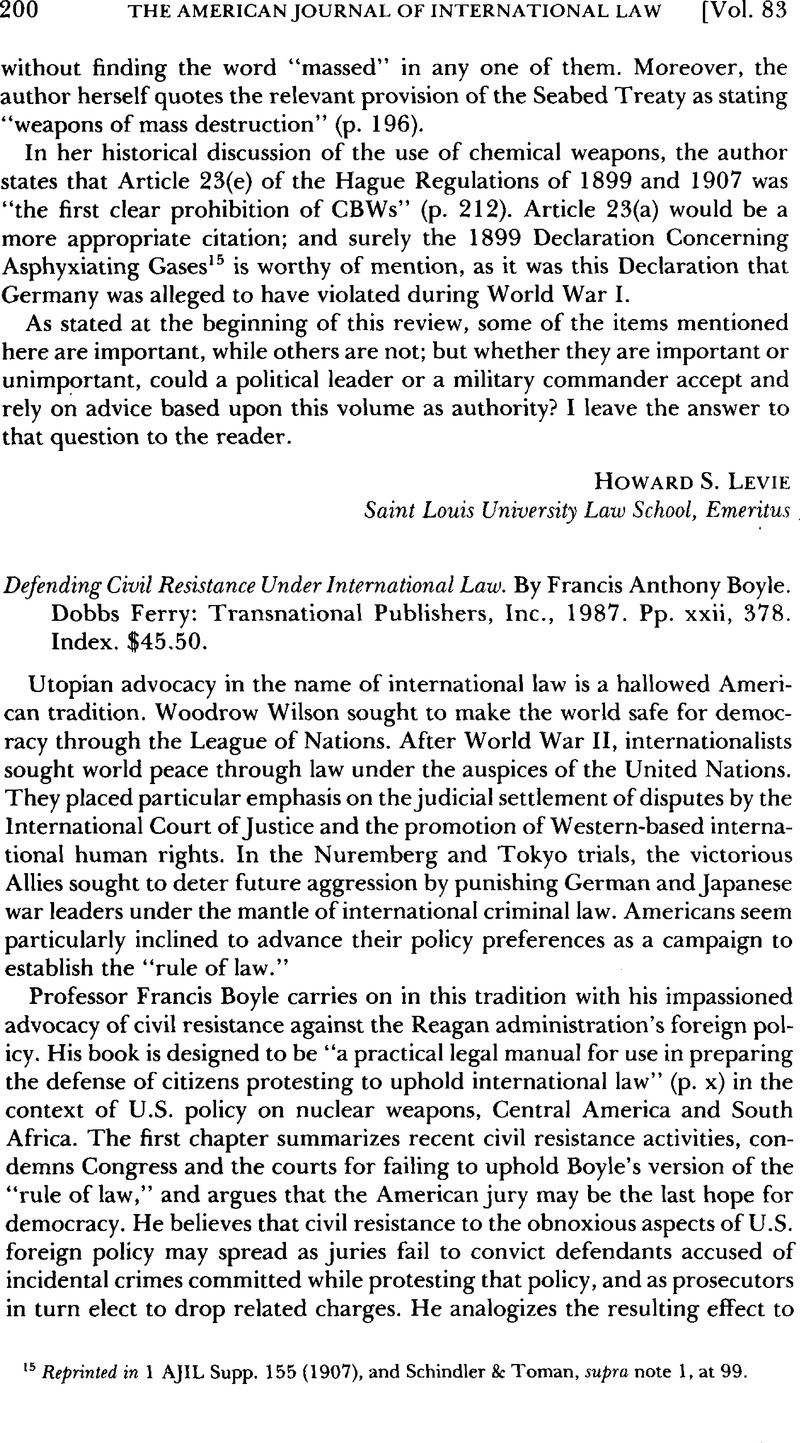No CrossRef data available.
Published online by Cambridge University Press: 27 February 2017

1 See, e.g., Nuclear Weapons and Law (A. Miller & M. Feinrider eds. 1984); R. Falk, L. Meyrowitz & J. Sanderson, Nuclear Weapons and International Law (1981); and F. Boyle, World Politics and International LAW (1985).
2 Boyle seems especially contemptuous of academics who have had government experience, apparently believing that they may be devoid of intellectual integrity. Thus, in discussing the testimony of expert witnesses, he advises
that it would prove to be very difficult for the prosecution to locate an international law expert willing to testify on its behalf for no fee who is not or has never been on the U.S. government’s payroll. In the unlikely event that you are confronted with an international law expert for the other side, be sure to impeach his credibility in front of the judge and the jury by extensively inquiring into his economic, political and career connections with the U.S. government & . I regret to report that the number of U.S. international law professors who could pass such questions with flying colors are few and far between.
The reader should accordingly understand that this reviewer has served as Assistant Legal Adviser in the Department of State in the Nixon, Ford and Carter administrations and as an American ambassador under President Carter.
3 For example, the Court of Appeals for the Eleventh Circuit rejected the defense of neces sity because the defendants had “reasonable legal alternatives” to resorting to criminal conduct, and they could not reasonably believe that their actions would lead to nuclear disarmament. United States v. Montgomery, 772 F.2d 733, 736 (11th Cir. 1985).
4 See Trimble, A Revisionist View of Customary International Law, 33 UCLA L. Rev. 665(1986).
5 Cf. Watson, Legal Theory, Efficacy and Validity in the Development of Human Rights Norms in International Law, 1979 U. Ill. L.F. 609.